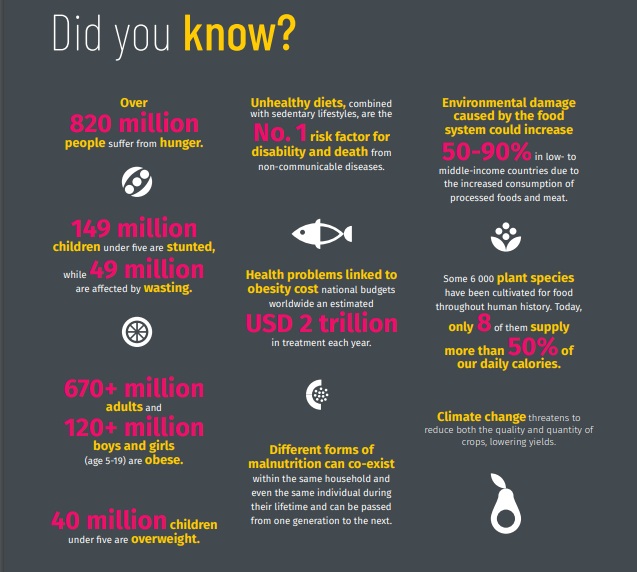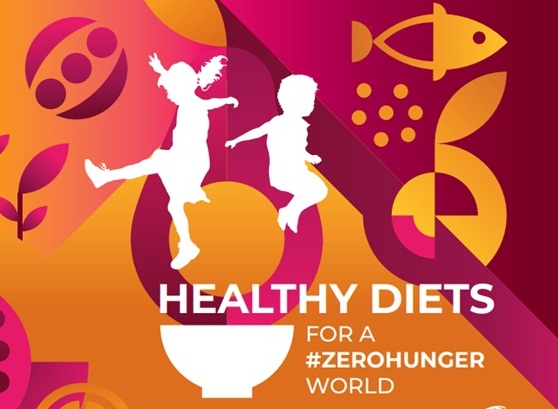TLI Staff
New Delhi: The world is becoming a hungrier place by the day. According to United Nations (UN), the number of chronically hungry people worldwide hit 821 million in 2018, up from 777 million just three years before, which means one in nine people still go to bed on an empty stomach each night and one in three suffer from some form of malnutrition.
To tackle the problem, World Food Programme set 15 global goals to improve people’s lives. Zero Hunger was one of the goals that was set to end hunger, achieve food security, improve nutrition and promote sustainable agriculture, and is the priority of the WFP.
“#ZeroHunger is not only about feeding the hungry but also nourishing people with healthy diets based on sustainable #FoodSystems. This #WorldFoodDay, I stress the urgent need to make healthy & sustainable diets affordable & accessible to everyone. #SDGs,” tweeted Amina J Mohammed, Deputy Secretary-General of the
UN.
An unhealthy diet can cause malnutrition and is the leading risk factor for deaths from non-communicable diseases, including heart disease, diabetes and certain cancers. Malnutrition affects one in three people and can cause vitamin and mineral deficiencies, stunting, wasting, overweight and obesity.
People are becoming unhealthier in general because of the dramatic change in our eating habits. As against seasonal foods and diets rich in fiber, we are consuming food high on sugar, fats and salt. Besides people are now spending less time in their kitchens preparing meals because of the surge in the number of fast food outlets and supermarkets.
Besides, in many parts of the world, guaranteeing availability and access to healthy diets remains an enormous challenge. “This can be true of people with limited financial resources, including smallholder agricultural producers and families in crisis situations caused by conflict, natural disasters and the impact of climate change. Some people, due to where they live, don’t even have the option to purchase fresh and nutritious foods,” according to FAO.
The Zero Hunger vision reflects five elements from within the UN-mandated Sustainable Development Goals, which taken together, can end hunger, eliminate all forms of malnutrition, and build inclusive and sustainable food systems.
In a booklet released ahead of World Food Day on October 16, FAO has also given tips for a healthy diet and how family nutrition can be improved:
Tips for a healthy diet
1) Eat enough, safe, nutritious and diverse foods to lead an active life and reduce the risk of disease.
2) Add fruits, vegetables, legumes (e.g. lentils, beans), nuts, seeds and whole grains.
3) Limit the intake of foods that are high in fats (especially saturated fats), sugar and salt.
4) All of the above should be complemented with regular physical activity.
How we can improve family nutrition
1) Increase our intake of fruits, vegetables, legumes, nuts and whole grains.
2) Limit the consumption of foods that require an excessive use of natural resources, such as water, to be produced.
3) Consume fewer foods and drinks which are high in refined sugars, saturated fats and/or salt.
4) Consider the environmental impact of the foods we eat.
5) Reduce or eliminate consumption of industrialized and convenience foods to favour more diverse and traditional foods, in an effort to support local biodiversity.
6) Learn or revisit lessons about local, seasonal foods, their nutritional values and how to cook and preserve them.

(Image source: FAO)

